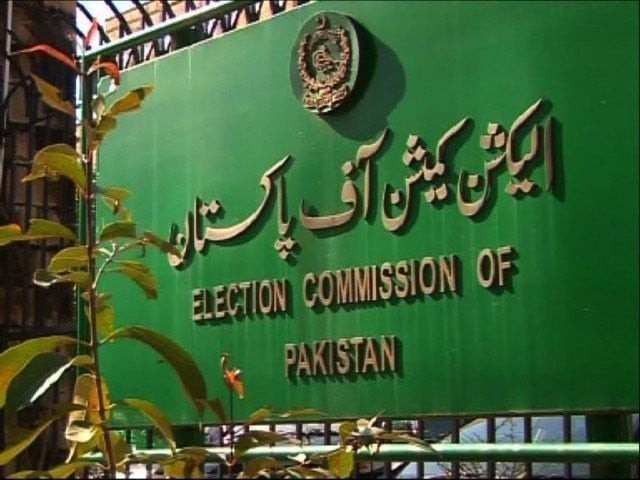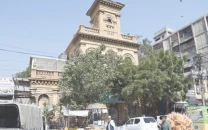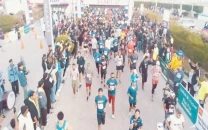Voter gender gap widens in 21 districts
Number of women registered to cast their ballots is 10% less than men in 89 districts

A survey conducted by the Election Commission of Pakistan has revealed that the gender gap among voters has actually widened instead of shrinking in 21 districts of the country
In 89 of the 131 districts of the country, the number of women registered to cast their ballots is 10% less than men.
As per law, special steps are required to be taken in districts where the gender gap among voters is up to 10%.
The districts where the gender gap has increased include two in Punjab (Pakpattan and Rajanpur), nine in Sindh (Sajawal, Thatta, Tando Allahyar, Matiari, Badin, Jacobabad, Sanghar, Shaheed Benazirabad and Sukkur), three in Khyber-Pakhtunkhwa (Buner, Chitral and Tank), and six in Balochistan (Killa Abdullah, Sohbatpur, Kalat, Loralai, Pashin and Zhob).
The total number of registered voters in the country has increased to 115 million. They include 64 million male voters and 51 million female voters.
The ECP had launched the survey in 21 districts in July to ascertain the reasons for the gender gap in voter lists.
In 2017, the country had passed a historic reforms law, the Election Act 2017, which limits the variation in constituency sizes according to number of voters to a maximum of 10%, in line with international good practice. Before the 2018 general elections, delimitation of constituencies was conducted across the country as per provisional results of 2017 consensus to achieve the target.
Chief Election Commissioner Sikandar Sultan Raja had recently said the ECP had ensured the registration of all eligible voters in their respective constituencies as per law and registered all other eligible voters not listed in the constituencies.
“The step of the Election Commission of Pakistan has significantly increased the number of voters from 112 million to 115 million,” he added.
The ECP chief said the commission had formulated a strategic plan 2019-2023 to achieve its goals while the commission was also working for the elimination of gender disparities in electoral rolls for which work was nearing completion.
“The ECP is an independent and constitutional body and committed to providing equal opportunities to everyone so that people can participate in democratic process,” said Raja, adding the commission was taking several key steps to make elections free and fair.



















COMMENTS
Comments are moderated and generally will be posted if they are on-topic and not abusive.
For more information, please see our Comments FAQ